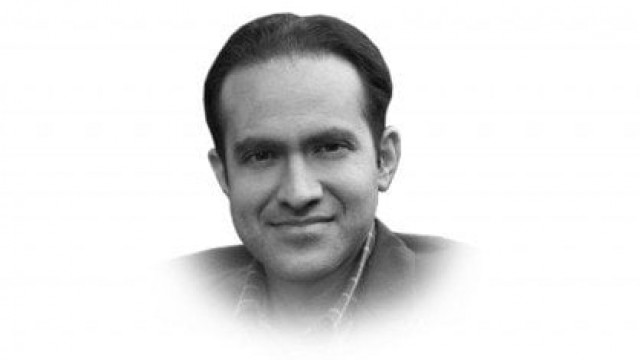Obama, Japan and Pakistan
President Obama, who showed us the audacity of hope, has become a victim of basest human fears.

In my recent visit to Japan, I discovered how popular our president is in a little fishing town on the Western coast of Honshu, called Obama. Yes, that’s right, the name of the town is Obama. As a metaphorical testament to his global appeal, President Obama’s name also has a rather Esperanto ring. Africans and Asians alike have “Obama” in their lexicon — not to mention the Arabians who have an ominously similar common name in their directories.
Few people knew of this town until the US presidential election in 2008 but it has now found its way into the Lonely Planet travel guide. The town has tried to capitalise on its incidental brush with fame by printing guide maps in English and t-shirts that declare their adoration of the president. Is this all commercialism or is there something genuine about the town’s enthusiasm for the president? My anecdotal conversations with Japanese professionals would suggest that there is indeed something more profound at play.
The relationship between the Japanese and the United States is a tale of ambition and agony. Going back to the Meiji reformation in the nineteenth century, the Japanese aspired to be more like the United States. However, at the turn of the twentieth century, the Japanese population became increasingly disillusioned with the west and a strong sense of nationalism took root.
The Japanese saw themselves as protectors of Asia from colonialism but they got consumed by fear and fury to their own detriment. In an unfortunate confluence of circumstances, World War II and the dawn of the nuclear age had a cataclysmic climax in Japan. Conflicting narratives have emerged about whether the dropping of the atomic bombs was essential to end the conflict or not. Scholars are also divided about the veracity and extent of alleged Japanese atrocities in Korea or China. Needless to say this was a terrible time for all sides. What is remarkable today is how fast the Japanese have moved on and healed their relations with Americans as well as with the Chinese and the Koreans.
My Japanese friend, Dr Satoshi Murao, whose family still lives in Hiroshima credited this to the Japanese doctrine of “wakon yousai”— seeking the best of the West and rejecting their worst. In the words of MIT historian, John Dower, the Japanese “embraced defeat,” and transformed their nation into an economic powerhouse. Pakistan can also learn from Japan’s relationship with America which has transcended acrimony of the worst kind to one of mutually beneficial friendship.
August marks the anniversary of the tragic atomic bombing of Hiroshima and Nagasaki which killed a quarter of a million Japanese and ended the Second World War. For the first time, an American ambassador was present at the annual remembrance ceremony in Hiroshima this month. A new leaf has been turned in an already strong US-Japan relationship. Let’s hope that Pakistanis and Americans can overcome their far less austere grievances for and allow a similar leaf to be turned as well.
Published in The Express Tribune, August 26th, 2010.














COMMENTS
Comments are moderated and generally will be posted if they are on-topic and not abusive.
For more information, please see our Comments FAQ